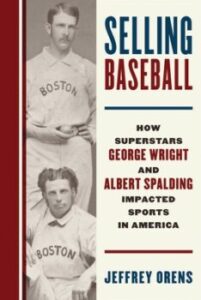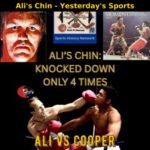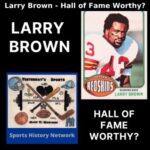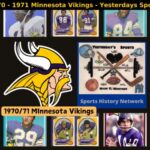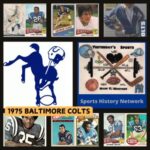George Wright and Al Spalding are two of the most important figures in 19th Century Baseball. Both were stars on the field and successful entrepreneurs off of it.
In this episode of Hello Old Sports, Dan and Andrew interview Jeffrey Orens, author of Selling Baseball: How Superstars George Wright and Albert Spalding Impacted Sports in America.
Below are a few short stories to give you an insight into the content you’ll find in the book. Pick up your copy today.
East Meets West
The game had just finished at Dexter Park, outside of Chicago, in what was supposed to be a warm-up for the highly touted baseball team from back east, the Washington Nationals. They had been undefeated in their “tour” of the west, the first time an elite club from the Northeast had ventured beyond the Allegheny Mountains.
They rampaged through Ohio, Kentucky, Indiana and Missouri, winning each of their seven contests by large margins before coming to Chicago, invited as the main attraction as part of a baseball tournament in late July, 1867.
Albert Spalding, the boy pitcher of the upstart Forest Citys of Rockford, Illinois, couldn’t quite believe what had transpired. Sports journalist and baseball proponent Henry Chadwick flatly stated that the not quite seventeen-year-old Spalding’s superlative pitching had “outwitted” the Nationals and their star player, second baseman George Wright, in upsetting them 29-23.
It was the first time these two would meet in their baseball careers, beginning an over forty-year friendly rivalry that saw them compete and collaborate with each other, both on the ball field and later in the business world as they largely created the sports equipment industry.
As the sport of baseball evolved from a game played for exercise and camaraderie by working- and middle-class men in the Northeast into an amateur sport embraced by many across the country before and during the Civil War, both Albert and George were in the middle of the action.
George was the best player in the game, a natural athlete who revolutionized the position of shortstop with his athleticism while being a ferocious hitter. Albert would grow to over six feet tall, towering over the average player of the time, calmly pitching with speed and finesse and becoming the best pitcher of his era.
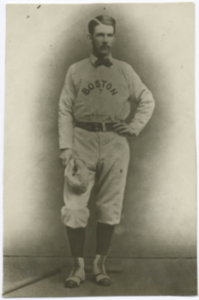
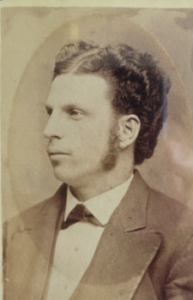
Red Stockings Galore
George became the keystone of the mighty Cincinnati Red Stockings in 1869, led by his brother Harry, a centerfielder whose real talent lay in bringing teamwork to a group of skilled individual ball players. They formed the nucleus of the first openly all-professional club, a group that was undefeated in almost seventy matches played that year.
Albert continued to grow as a pitcher but was unable to win a match against this group until late in 1870. George and Harry kept an eye on this maturing talent while moving to Boston the next year in the first professional league, the National Association of Professional Base Ball Players, or NA. They convinced Spalding to be their pitcher. Together, the three became the core of the first great dynasty in professional baseball, the Boston Red Stockings.
By 1875, this team had won four of five league championships and spectators were becoming tired of paying fifty cents a game to see them win yet again. Although they had taken a trip to England to demonstrate that baseball was a worthy competitor of cricket, the game back home was suffering from this unequal distribution of baseball talent among the various teams.
This, coupled with a number of ball players’ excessive drinking and growing tendency to throw a game for a payoff for gamblers, drove Spalding to take action. He left Boston with three other teammates for the Chicago White Stockings, enticed by their owner, William Hulbert.
Together, Hulbert and Spalding founded the National League, dedicated to cleaning up the sport. By 1876, the NA had collapsed and was replaced by the NL. In its inaugural year, Spalding pitched as well as managed the team to the first title in the new league. Baseball was maturing.

The Sports Eqipment Industry
George and Albert would end their playing careers shortly after. Spalding became a part owner and president of the White Stockings when Hulbert died. But both became owners of sports equipment businesses that would largely be the foundation of the sporting goods industry. Spalding & Bros. would dominate the supply of baseball goods, adding football, basketball, and bicycling to their mix.
Wright brought on a trusted associate, Henry Ditson as a partner, Wright & Ditson branching out from baseball in different directions, popularizing tennis, golf, and hockey and becoming a leading supplier of the equipment for these sports. Wright and Spalding were promoters extraordinaire, catering to the ever-increasing appetite of a sports-hungry public.
In 1888, Spalding sponsored a world baseball tour and took Wright along, the White Stockings playing exhibition baseball against a team of American all-stars, demonstrating the sport worldwide and creating demand for equipment in the process. When Ditson died suddenly in 1891, three months later Spalding bought out George Wright as he built his sporting goods empire that was to control the marketplace for decades afterwards.
Origins of Baseball
By the end of the century, in Spalding’s final official baseball act, he pushed for the creation of the Mills Commission, a panel headed by former NL President Abraham Mills and stacked with friends like George Wright, to determine whether the game of baseball was a home-grown American sport or English in origin. Spalding’s view was the former, set in his belief that baseball was rooted in American values such as fair play, teamwork, and winning.
With scant evidence, he claimed that Abner Doubleday, a Union general during the Civil War, was the inventor of the sport in 1839, scratching its rules for his playmates in the dirt in a field behind a farmhouse in bucolic Cooperstown, New York, when he it was later shown that he was at West Point learning how to be a soldier. No matter.
George Wright and the others rubber-stamped this conclusion, supporting Spalding’s assertions. The American public took this origin myth to heart, and even in the face of evidence developed years later to the contrary, many continue to believe it. Indeed, the game has been shown to be an American original, but invented by a teenager behind a barn in upstate New York? Hardly.
But Wright and the others knew, as did most of the public, that what was important wasn’t where the game came from or who invented it. Rather, the actual playing of the of the game was the important thing. For in playing baseball, no matter where you’re from or what talent you have, you’ve become part of the greater whole that is America.
Please Consider Sharing If You Like This Article
Author - Jeffrey Orens
Jeffrey Orens is a retired chemical industry executive who has fused his love of history with skills in writing and research to create books that entertain as well as educate. He has written for historical journals and is a member of the Society for American Baseball Research (SABR), publishing articles on nineteenth-century baseball.
Jeff has presented at SABR’s nineteenth-century baseball conference as well as the Symposium on Baseball and American Culture, both at the Baseball Hall of Fame in Cooperstown, New York. His first book, The Soul of Genius: Marie Curie, Albert Einstein, and the Meeting that Changed the Course of Science, was an in-depth look at one of the most fascinating periods of science as seen through the lives of the two most well known scientists in the world.
Selling Baseball: How Superstars George Wright and Albert Spalding Impacted Sports in America, tells the tale of baseball’s first two superstar professionals, their stellar careers in the game and then in largely creating the sporting goods industry. As a follower of the New York Yankees since 1963, Jeff is an avid fan, bringing along his daughter and seven year-old granddaughter in the same fashion.
Please Note – As an Amazon Associate I earn from qualifying purchases
Resources
More From Yesterday's Sports
Muhammad Ali’s Chin: Knocked Down Only 4 Times
Muhammad Ali’s boxing career is well documented, so instead of...
Read MoreLarry Brown – Is He Hall of Fame Worthy?
A committee member recently asked me my opinion on inducting...
Read More1970s Minnesota Vikings : Would A Better QB Helped Them Win A Super Bowl?
Here’s a question I often hear, especially from Minnesota Vikings...
Read More1975 Baltimore Colts: A Year In Review
From 1957 to 1971, the Baltimore Colts never experienced a...
Read More